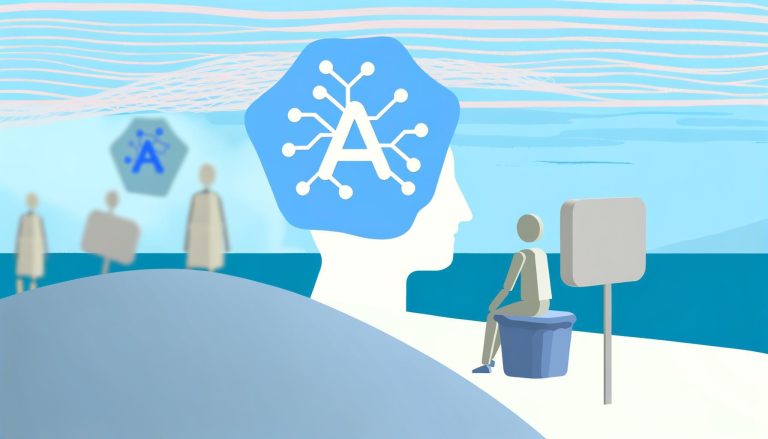As autumn leaves fall and winter nights stretch, many individuals experience a noticeable shift in mood and energy levels. This phenomenon, known as Seasonal Affective Disorder (SAD), affects millions worldwide, bringing a seasonal bout of depression as sunshine diminishes. Fortunately, with advancements in technology, artificial intelligence (AI) offers innovative strategies for managing SAD, promoting well-being throughout the year. In this article, we explore AI-driven approaches to combat SAD while providing a comprehensive guide to maintaining mental health during those darker months.
Understanding Seasonal Affective Disorder
Before diving into AI strategies, understanding the nature of SAD is essential. SAD is a type of depression related to changes in seasons, usually starting in the late fall and early winter and going away during the spring and summer. Although the exact cause of SAD isn’t known, several factors have been identified:
- Biological Clock Disruption: Reduced sunlight can affect your body’s internal clock, leading to feelings of depression.
- Serotonin Levels: A drop in serotonin, a brain chemical affecting mood, might play a role.
- Melatonin Levels: Changes in the season can alter melatonin levels, impacting sleep patterns and mood.
The symptoms are similar to those of depression, such as fatigue, hopelessness, and changes in appetite or sleep.
AI Strategies for Combatting Seasonal Affective Disorder
1. Personalized Light Therapy
One of the most effective treatments for SAD is light therapy, which involves exposure to artificial light to compensate for the diminished sunlight during winter. AI can enhance this therapy through:
- Adaptive Light Schedules: AI algorithms can tailor light exposure plans based on user feedback and lifestyle patterns.
- Real-Time Monitoring: AI-enabled light devices can adjust intensity and duration in real-time, ensuring optimal exposure.
2. Mood Prediction and Adjustment
AI applications can analyze patterns in your mood and habits, predicting potential depressive episodes. These insights allow proactive intervention through:
- Custom Mental Health Tips: Providing personalized recommendations on diet, exercise, and relaxation techniques.
- Virtual Support Networks: AI-driven chatbots offering real-time support and empathy when needed.
3. Cognitive Behavioral Tools
Cognitive Behavioral Therapy (CBT) is a proven method for managing depression, including SAD. AI can help deliver CBT tools directly through your smartphone, offering:
- Interactive Journaling: Prompts and exercises guided by AI to encourage self-reflection and thought restructuring.
- Progress Tracking: Monitoring mood changes to reflect on patterns and improvements over time.
4. Enhanced Sleep Management
Sleep is crucial for mental well-being, yet it can be significantly disrupted by SAD. AI technologies help manage sleep through:
- Sleep Pattern Analysis: Evaluating sleep cycles to identify disturbances and suggest improvements.
- Smart Sleep Environments: IoT-enabled devices that optimize bedroom conditions based on sleep needs.
Benefits and Practical Tips for Year-Round Well-being
1. Embrace Regular Physical Activity
Exercise releases endorphins, natural mood lifters. Even 20-30 minutes daily can significantly impact your mental health.
- Try to engage in outdoor activities, especially during daylight.
- Incorporate variety to keep the routine engaging, such as yoga or dance.
2. Maintain Social Connections
Social support is essential for managing any form of depression. AI can play a role by:
- Virtual Reality Meetups: Using VR to virtually meet friends, reducing feelings of isolation.
- Online Support Groups: AI-curated groups for individuals experiencing similar challenges.
3. Balanced Nutrition
Nutrition plays a significant role in mental health. Aim for a diet rich in omega-3 fatty acids, whole grains, and plenty of fruits and vegetables.
- AI apps can help track nutritional intake and provide suggestions for improvement.
4. Harness Mindfulness Practices
Mindfulness and meditation can enhance emotional regulation. Consider:
- Guided AI Meditation Apps: Applications offering tailored meditation experiences.
- Mindfulness Reminders: AI tools to remind you to take mindful breaks.
Conclusion
Managing Seasonal Affective Disorder requires a multifaceted approach, combining lifestyle changes with technological advancements. AI offers personalized solutions that adapt to individual needs, ensuring the support is as effective as possible. By embracing AI-driven strategies like personalized light therapy, mood tracking, and enhanced sleep management, individuals can maintain a balanced mental state year-round, transcending the boundaries that the seasons impose on their well-being.
As you integrate these strategies into daily life, consider leveraging resources like the Zenora App. With features that support mood tracking through journal entries, goal setting, and personalized counseling, the app is designed to help you cultivate resilience and positivity, empowering you to face each season confidently.





